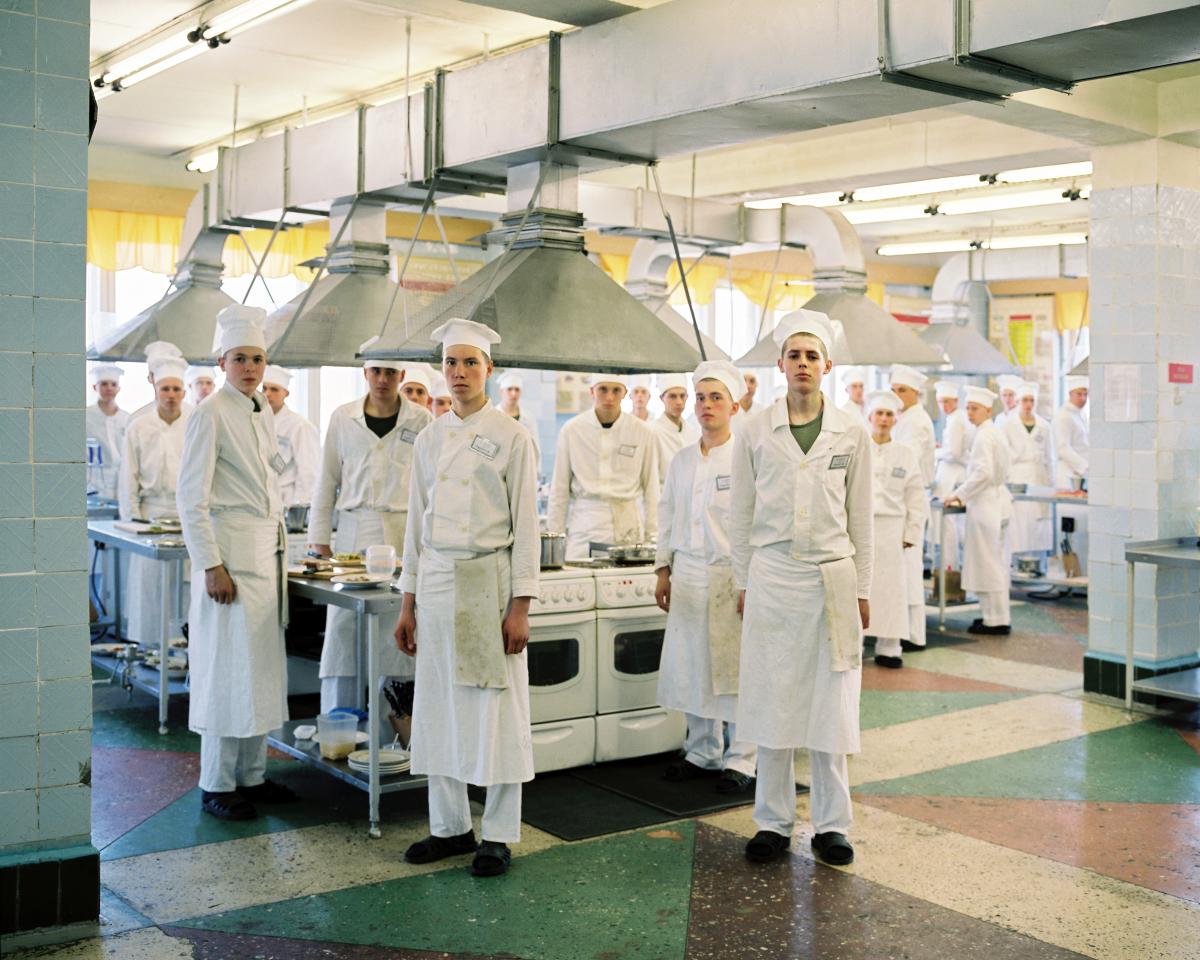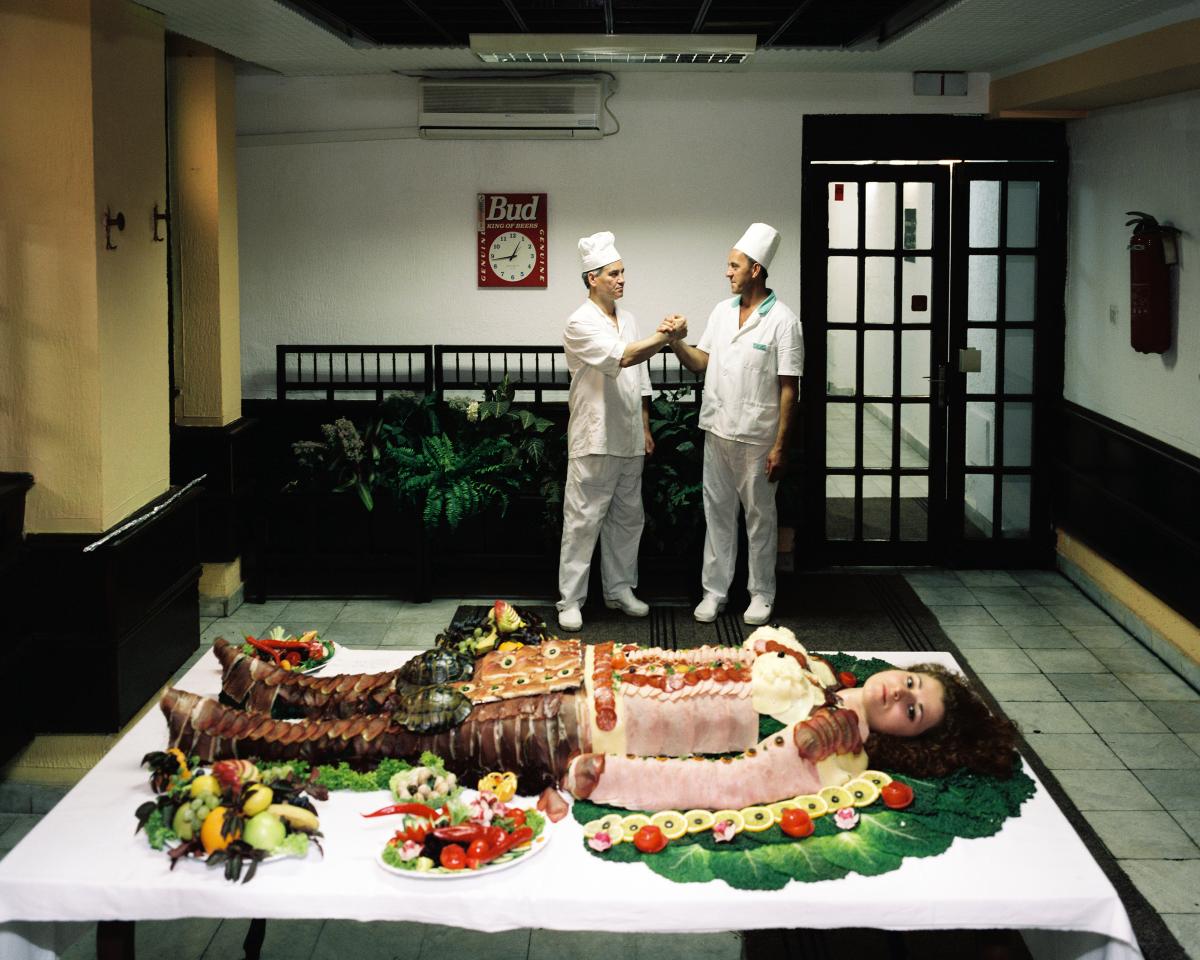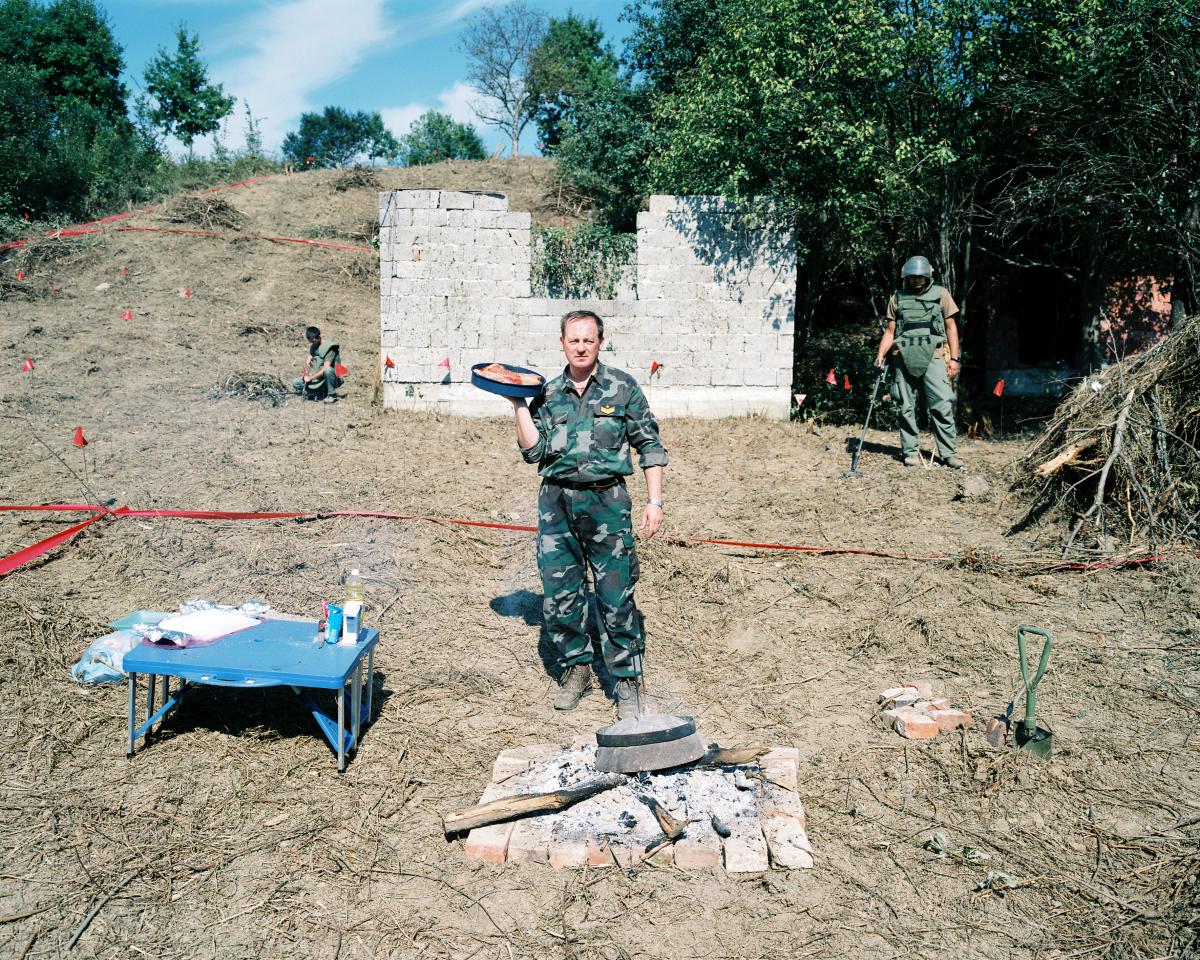Chefs on the Battlefield
Director Peter Kerekes documents the stories and recipes of the men and women who keep their armies fed… …and perhaps change history in the process.
Cover photo: Students of the 190th Military Academy for Chefs demonstrated how to process a cow in a conflict situation, from slaughtering the animal to cooking the meat (beef stew for the regular soldiers, and steaks for the officers). (Photo: Martin Kollár)
Cooking History, a documentary film by Slovak director Peter Kerekes, provides fascinating insights into the most inconspicuous, but perhaps most vital part of any war: army chefs. Food plays an important role in any armed conflict, or as Branka Mudrenić, one of the interviewed cooks says, ‘Without food there is no war, that is clear.’ The veterans recount their dramatic stories from the Second World War, the Algerian War, the Hungarian Revolution of 1956, the occupation of Czechoslovakia in 1968, the Balkan wars and the war in Chechnya. Russian cook Klavdia Lobanova recalls cooking blintchiki for the Soviet pilots during the Leningrad siege, while German Franz Wienhart talks about baking bread for the hungry German soldiers on the other side of the blockade. Zoran and Zlatko, two Serbian army chefs, cooked snake goulash and scrambled wild birds’ eggs while their units were in hiding near Kosovo, petrified by the idea that their hot kitchen could be the first target of the NATO heat-seeking missiles.

Naro-Fominsk, 70 kilometres southwest of Moscow, is the home of the 190th Military Academy for Chefs. Since its foundation in 1961 the school has produced more than 25,000 chefs. (Photo: Martin Kollár)
You seem to enjoy a good story
Sign up to our infrequent mailing to get more stories directly to your mailbox.The documentary presents the individual stories of the chefs as well as the recipes which may have affected the history of modern Europe. Even decades later, the cooks are still reliving their memories, still loyal to their generals and their orders. Branko Trbović, personal taster of Marshal Josip Broz Tito, lost his appetite and ability to taste food the day after Tito passed away. But he still keeps a book with all the dishes served to the supreme commander of the Yugoslav army.

Zoran & Zlatko, Serbian survival cooking experts, usually cook in the improvised conditions of a battlefield, but occasionally also provide catering for private parties. (Photo: Martin Kollár)

Croatian chef Mladen Vlachyna volunteered to join the Croatian army in 1991 after the Battle of Pakrac, which resulted in a full-scale war between Croatia and its rebel Serb population. (Photo: Martin Kollár)
Kerekes interviewed 106 army cooks around Europe, a dozen of whose stories he selected for the film. Most of the cooks tried to impress the movie director not only with their stories, but also with their dishes, and during shooting Kerekes gained 11 kilos.

